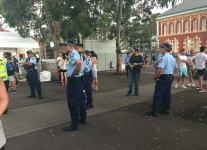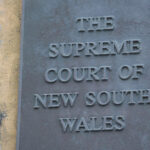When can I be strip-searched?

Strip-searching is one of the most invasive intrusions of privacy.
It should therefore only be undertaken in rare circumstances, when there are no other alternatives.
Unfortunately, this does not always happen.
In Broken Hill in 2011, several NSW police officers strip-searched a 17 year old Aboriginal boy who was suffering from an intellectual disability.
Their reasons for searching him were that he ‘appeared very nervous’ and had been seen in a ‘known drug area’.
Police must have a suspicion on reasonable grounds to conduct any type of search on a person.
And being nervous when approached by police is not enough, as this can be the natural reaction of any child – or adult for that matter.
It is unlikely to be enough even if someone is present in a known drug area, unless there is something more to found a ‘reasonable’ suspicion that they are breaking the law.
But not only was the boy searched, he was searched in the most degrading way.
The boy’s lawyer from the Aboriginal Legal Service (ALS) stated that his client had been searched 26 times in the previous two and a half years and was never found to have been in possession of drugs on any of those occasions.
And police had gotten away with searching the boy so many times, without any form of reprimand.
The law says that if a person is over 10 and under 18 years of age or has impaired intellectual functioning, a parent or guardian must be present in order for a strip-search to be undertaken.
The only exceptions are where it is not reasonably practicable in the circumstances, or if the child would find their presence unacceptable and would prefer the presence of another person who is capable of representing their interests.
But in this case, although there were up to six police officers involved in the search, there was no evidence that there was any attempt for a parent or guardian to be present during the search.
The police found 2.2 grams of cannabis in his underpants on this occasion, and they also charged him with hindering police when he struggled during the search.
In the Children’s Court, the Magistrate threw out the hindering police charges, but the boy was still found guilty of cannabis possession despite the illegal search. The child received a caution.
The case was appealed to Broken Hill District Court, where Judge English ruled that the cannabis found during the illegal search should not have been admitted as evidence.
Her Honour threw the case out on that basis.
Illegally or improperly obtained evidence is liable to exclusion, and so it should be.
To allow such evidence to be used in court would send a signal to police that they can break the law and get away with it.
A strip-search in NSW can require a person to remove their underpants and have their entire body examined.
However, the search must be reasonable in the circumstances, and therefore cannot involve the removal of any more clothing than is necessary.
A strip-search does NOT allow police to touch your body or examine your internal cavities.
Police guidelines require strip-searches to be carried out in a way that preserves the dignity of the person as far as possible.
But not all police stick by the rules – as was evident in the case of the Aboriginal boy.
You can only be strip searched if:
You are under arrest and police reasonably suspect that you are:
- Concealing important evidence of a crime;
- Concealing something dangerous; or
- Hiding weapons or drugs
The search should be performed by someone of the same sex unless there are exceptional circumstances that prevent this from occurring.
Under NSW law, a strip-search can only be carried out if the officer believes on reasonable grounds that one of the above-mentioned situations exist and that the seriousness and urgency of the circumstances requires it a strip-search to be undertaken, rather than a different type of search.
You cannot be strip-searched in public and it should not be done in the presence of anyone whose presence is not needed.
In the case of the Aboriginal boy, police were clearly acting outside their powers because:
- they had insufficient reason to conduct a search in the first place, let-alone a strip-search,
- they did not attempt to comply with the requirement that a parent or guardian be present at the search, and
- there was no need for so many officers to be present watching the child stripping naked.
Being allowed to use this evidence in court would reward police for acting outside the law and would convey the message that there are no consequences for doing so.
It would likely lead to further police misconduct.
In this instance, the actions of police further strained the already tense relationship between police and the Aboriginal community in Broken Hill.
If you have concerns about the legality of any personal searches on you or a loved one, contact a criminal lawyer immediately.
Police who search people illegally should not be allowed to get away with it.
Those who illegally strip-search children should be severely reprimanded and the NSW police service should be brought to account for such misconduct.
And evidence derived from such searches should not be allowed in court.






